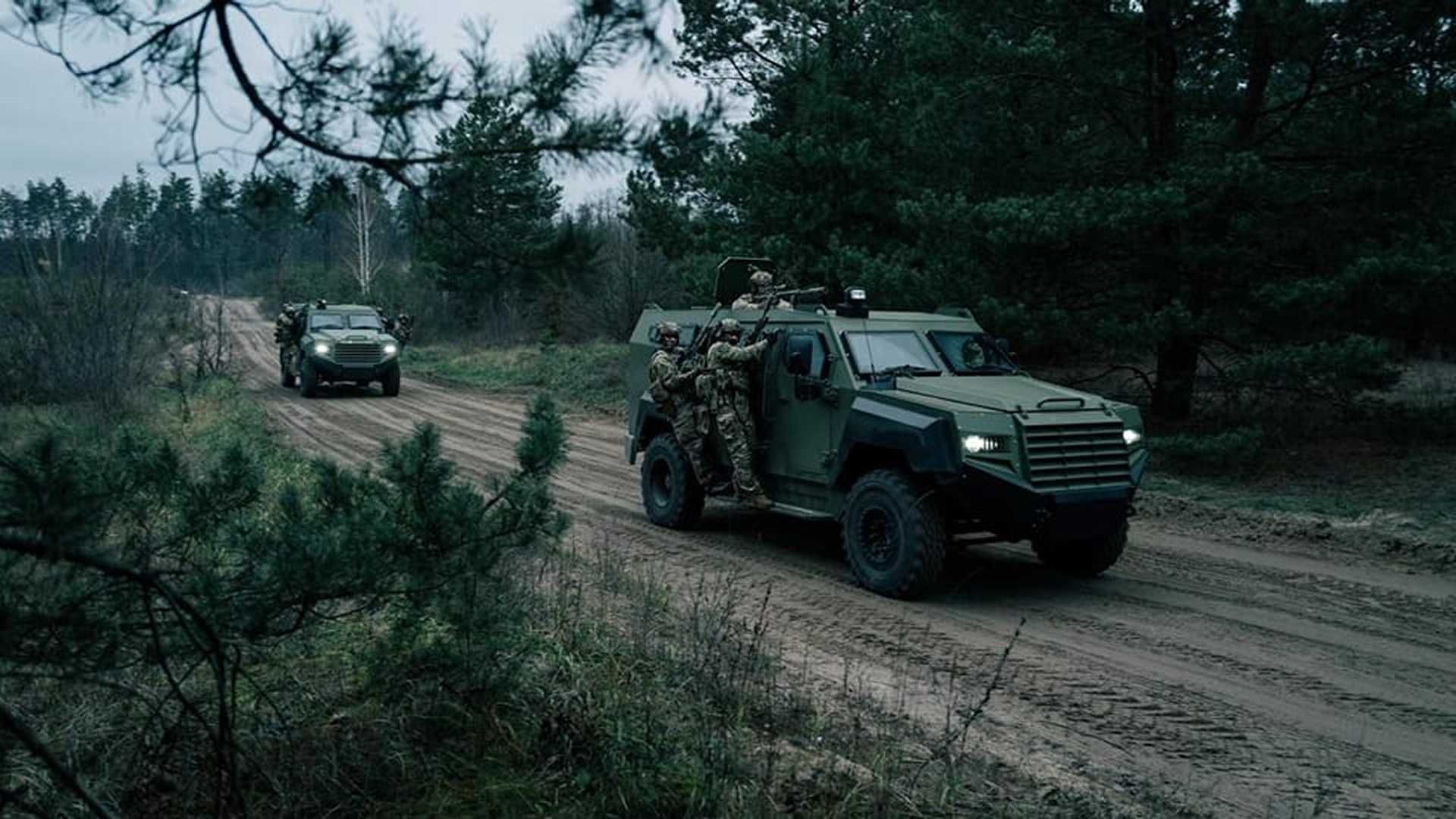Breaking News
Canadian company Roshel opens first production plant in Michigan to support US defense needs.
On December 13, 2024, Roshel, a Canadian manufacturer of armored vehicles, opened its first production facility in the United States, located in Shelby Township, Michigan. This facility is intended to support increasing demand from U.S. customers and aligns with the company's goal to deliver products manufactured domestically. According to CEO Roman Shimonov, this expansion reflects Roshel’s effort to bring production closer to its clients while adapting to evolving industry requirements. The new plant consolidates manufacturing processes and includes a service center to maintain vehicles used by U.S. federal and government agencies.
Follow Army Recognition on Google News at this link

The Senator is designed for various roles, including law enforcement and military operations, and has been deployed in multiple conflict zones. (Picture source: Roshel)
The facility in Michigan mirrors Roshel’s Canadian operations, producing armored vehicles such as the Senator Mine-Resistant Ambush Protected (MRAP) vehicle. The Senator is designed for various roles, including law enforcement and military operations, and has been deployed in multiple conflict zones. The plant aims to enhance Roshel’s ability to deliver its vehicles efficiently while maintaining operational readiness for its customers.
Roshel collaborates with the Ford Motor Company, using the Ford F-550 chassis as the base for its Senator series. The F-550, part of Ford's Super Duty lineup, offers high payload and towing capacities. Roshel modifies these chassis to meet specific operational requirements, including ballistic protection and modular configurations. This partnership enables Roshel to provide vehicles suitable for military, security, and emergency response applications.
Since its introduction in 2018, the Senator has been produced in several configurations, including APCs, MRAPs, and emergency response vehicles. The MRAP version, launched in 2023, incorporates a V-shaped hull for blast protection, lightweight composite materials, and thermal and acoustic insulation. Certified to NATO STANAG 4569 Level 2 standards, it is designed to protect against anti-tank mines with up to 6 kg of explosives and provides 360° ballistic protection. It is powered by a 6.7L turbo diesel engine, delivering 330 horsepower and 750 Nm of torque, with a range of 800 kilometers and a payload capacity of up to 2,000 kg. The Senator accommodates up to ten occupants and supports various armament options, including remote-controlled weapon systems and anti-tank guided missiles.
Roshel’s production operates continuously at its Canadian facilities, achieving a monthly output of 140 vehicles. This capacity has enabled Roshel to supply Ukraine with over 1,400 Senator vehicles since the beginning of the Russian invasion. The Senator has been deployed extensively in Ukraine, where it has been used for troop transport and medical evacuation. Ukrainian forces have highlighted its ability to withstand attacks, including incidents involving First-Person View (FPV) drones.

Roshel’s production capacities, achieving a monthly output of 140 vehicles, has enabled Roshel to supply Ukraine with over 1,400 Senator vehicles since the beginning of the Russian invasion. (Picture source: Roshel)
Roshel has expanded its operations globally, proposing a factory in Germany to manufacture MRAPs for NATO and European customers. The company also plans to localize part of its production in Ukraine, where it currently operates repair and maintenance facilities. Roshel employs Ukrainian refugees in Canada, many of whom have expressed interest in contributing to local production efforts in their home country. The Ukrainian facilities are intended to enhance Roshel’s presence in Europe while reducing logistical costs and supporting the local economy.
In addition to the Senator, Roshel has developed new models such as the Captain, a light tactical armored vehicle based on the Toyota Land Cruiser 70 chassis, and a medical evacuation version of the Senator. The Captain is designed for rapid-response scenarios, offering STANAG 4569 Level 1 ballistic protection and Level 2 explosion resistance. These additions to Roshel’s product line aim to address specific operational requirements for both defense and humanitarian missions.
Roshel has supplied armored vehicles to multiple countries, including Costa Rica, South Korea, and Bosnia and Herzegovina. The company’s MRAPs are certified to NATO standards for ballistic and blast protection. In Germany, Roshel has proposed delivering 100 MRAPs to Ukraine while building a local production facility to support NATO operations. The vehicles are priced competitively compared to alternatives and have been used in combat conditions.
Founded in 2016 by Roman Shimonov, a former member of the Israeli Defense Forces, Roshel operates four manufacturing plants in Ontario, with plans for further expansion in the U.S. and Europe. The company has fulfilled several contracts ahead of schedule, including the delivery of 200 Senator vehicles to Ukraine as part of a $92 million CAD aid package from Canada. These developments reflect Roshel's growing role in the global armored vehicle market and its efforts to meet increasing demand across multiple regions.


























